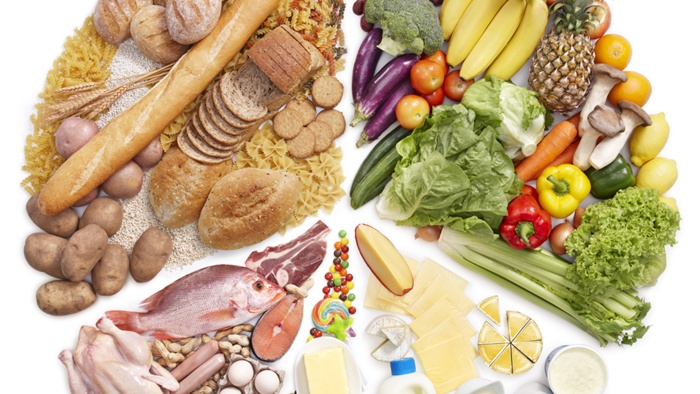
The act of eating appears to be pretty simple: You eat and the nutrients work together to benefit your health and wellness.
In a perfect world, everyone would benefit from the whole foods they eat, but this isn’t always the case. Not getting adequate nutrition is something that happens all too frequently in the United States. According to the Child Welfare League of America, there are approximately 33 million people in the U.S. alone who suffer from malnutrition, including 13 million children.
Many adults may have trouble with malnutrition or nutrient absorption even though they eat plenty of healthy foods. I definitely fit that description. I’m a young, healthy man, but despite my best efforts, I’m not getting all the nutrients my body needs. I recently found out my top nutrient deficiencies are iron, manganese, vitamin B12 and vitamin E. During an appointment with a nutritionist, I also showed signs of zinc deficiency. How did that happen?
Are You Nutrient Deficient?
Common blood tests will help determine some nutrient deficiencies such as iron, potassium or vitamin B12. There are also common symptoms to look out for as well. Lack of energy, delayed wound healing, diarrhea, depression, poor concentration and irritability are some common signs. You may even lose weight suddenly or bacteria overgrowth can clog your colon and lead to yeast infection.
The big issue in malnutrition is not always about eating enough food. When you are not producing enough stomach acid, mineral absorption becomes difficult. Minerals require bile, which is triggered by hydrochloric acid. If you’re low on this stomach acid, things won’t move along properly in your small intestine. Iron, zinc, protein and calcium are among the nutrients that will not metabolize without hydrochloric acid.
Get your digestive and absorption issues sorted so that your diet can better address possible nutrient deficiencies.
Here are five common nutrient deficiencies and the best foods for them.
Iron
Vegetarians and vegans often come up against this one, which can lead to anemia, a condition that produces a reduction of red blood cells in the body. The body also needs sufficient stomach acid to metabolize iron; consuming too much caffeine can block the absorption of iron.
Red meat, organic eggs, nuts, beans, wild fish, oatmeal, poultry, venison, quinoa, lentils and pumpkin seeds are all good sources of iron. Keep in mind that vitamin C will also increase the absorption of iron. Eat plenty of healthy foods that contain both nutrients together, such as spinach, broccoli, asparagus, celery and kale to help you get the power from both nutrients at once.
Zinc
The most visible sign you have a deficiency in zinc is white spots on your nails. Other signs include stretch marks, white coating on your tongue, brittle nails and a greater susceptibility to colds or flu. Zinc is essential for cell and tissue formation, insulin activity and wound healing. It’s also responsible for the manufacturing of hydrochloric acid in the stomach.
Zinc helps break down alcohol; high alcohol consumption can also lead to zinc deficiency, too. Brewer’s yeast, sunflower seeds, seafood, ginger, chili powder, pumpkin seeds, liver, organic eggs, grass-fed beef, lamb, venison and collard greens all have healthy amounts of zinc
B Vitamins
Vitamin B12 is the most common B vitamin deficiency, but lacking several of the B vitamins can result in reduced thyroid and adrenal function, depression, anxiety and lack of concentration and memory as well. Skin disorders, headaches, insomnia and gastrointestinal symptoms may also result from deficiencies in B vitamins.
There are many natural whole foods that contain plenty of B vitamins, including green leafy vegetables, avocado, brown and wild rice, broccoli, cauliflower, mushrooms, chicken, organic eggs, wild salmon, nutritional yeast, brewer’s yeast and almonds.
Vitamin D
Vitamin D deficiency is common because the best source is the sun, and the majority of people don’t get enough exposure considering how sedentary people have become. Vitamin D deficiency stems from low stomach acid and an underactive liver and gallbladder. The absorption of calcium and phosphorus are increased within the intestinal tract with vitamin D. It also helps regulate the mineralization and calcification of your bones and cells.
The best dietary sources of vitamin D include cod liver oil, egg yolks, liver, wild fish, shrimp, sardines and mushrooms.
Manganese
Manganese is often overlooked, but it is a very important nutrient, too. It has several necessary responsibilities which include the maintenance of normal blood sugar levels, cell protection and thyroid gland function. Manganese is also needed for bone development and formation. If there is too much iron or manganese in the body, each mineral will deplete the other.
The best food sources of manganese include green leafy vegetables, bananas, legumes, liver, tofu, pineapple, romaine lettuce, collard greens, beets, whole grains, peas, celery, raspberries, garlic, broccoli and flaxseeds.
The lack of any key nutrient can be a precursor to other health problems, so it is better to address them quickly. Try to increase the good bacteria in the gut by consuming plenty of probiotics—found in foods like kefir, yogurt and raw sauerkraut. The good gut bacteria will help with absorbing food and nutrients.
I’d also recommend a general detoxification diet (I’ve done that, too!) as a productive step in the right direction to correct your nutrient deficiency.
Sources:
Hinton, L., et al., Nutritional Symptomatology Course Notes (Toronto: Health House, 2012), 18-29, 30-33, 36-37.
Mateljan, G., The World’s Healthiest Foods: Essential Guide for the healthiest way of eating (Seattle: George Mateljan Foundation, 2007), 766, 796, 802.
“Malnutrition,” Child Welfare League of America website; http://www.cwla.org/programs/health/healthtipsmalnutrition.htm, last accessed August 1, 2014.












